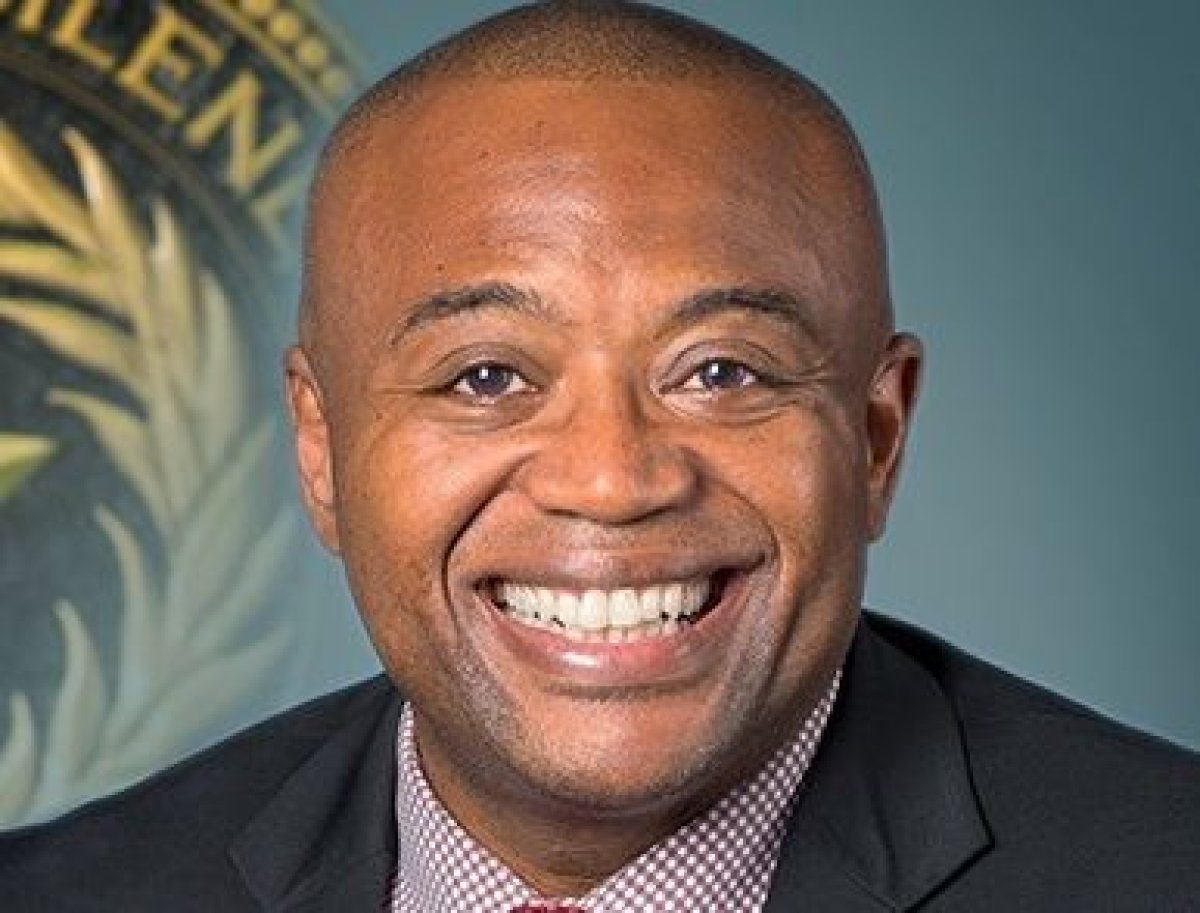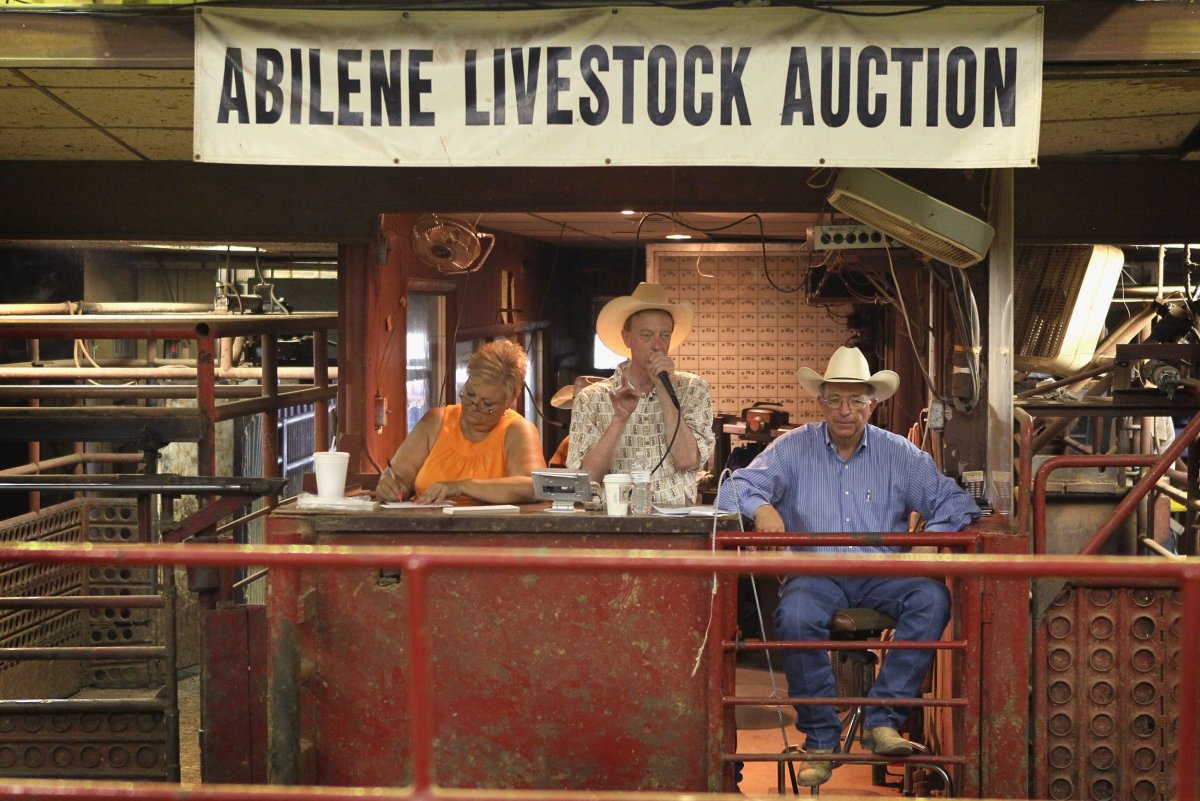To know Abilene is to know an American town that today's elite political class simply can't wrap their small-minded heads around. No other town in America voted more heavily for President Trump than this former frontier town in West Texas. Nearly 80 percent.
The town of over 130,000 people is also predominantly white. Over 75 percent.
Leftists media types and academics would look at those two numbers and jump to all kinds of knee-jerk conclusions. Just as CNN's white resentment evangelist Van Jones did when—on election night and without any supporting facts—he called the Trump win a "whitelash."
He essentially called white people who voted for Trump racists, and CNN's Anderson Cooper listened to the ugly, hateful charge without a rebuttal. Or even a raised eyebrow. We all know why.
But here's why Abilene is so interesting. In 2017, just months after voting so overwhelmingly for Trump, they elected a black mayor for the first time in the town's 136 year history. And did so by a wide margin.
Those same white people who voted for President Trump helped propel Anthony Williams to victory in a town with a black population hovering at 10 percent.
"People were so eager to vote, there was actually a higher turnout at the runoff than the general election," the Texas Standard reported. "It's been at least two decades since that has happened in Taylor County."
"Just like other Texans, I'm proud to be a Texan," Williams told local reporters and residents in town after the big win. "As an African-American, I'm proud of my heritage, but I really want to focus more broadly on our community."
Is that nativism, to be proud of your home state? Or home town? If so, Williams is a black nativist who didn't at all mind sharing his pride and love of his community.
Local media was equally proud. "Normally, a few officials, friends and family show up for this bit of official duty that follows acceptance of an election vote," the editorial team at the Abilene Reporter News wrote the day after Williams was sworn into office. But this ceremony, the editorial board continued, was different.
"The people crowded into the room may never have been more diverse. Men and women. Young and old. White, black and brown. Some dressed casually, some in suits and dresses. People of different political views, for sure. And probably people of different sexual orientations. What they shared was the moment—an African-American had won election as mayor," the editorial noted. "The look on some old-timers' eyes in the audience suggested pride and satisfaction that a once unthinkable event has occurred."

How did he win? "I would attribute that to our hard work," Williams said after his victory. "We actually contacted 20,000 registered voters."
But the Abilene Reporter's editorial board had a broader explanation for the win. "What appealed to more voters were his likability, the effort he put into his campaign, his ideas and being all-in for Abilene," the concluded.
Williams campaigned around race, and spoke often about seating a more diverse group of people at the table, meaning, in part, more people of color. But that didn't scare away the white majority because the voters in Abilene knew Williams. And Williams knew them.
It didn't make national news, that history-making story. And social scientists and researchers won't be running to the west Texas town any time soon to study the voters there.
We all know why: the story doesn't comport with the narrative that white people voted for Trump because they are racist, misogynist, xenophobes who fear losing their status in the world to a growing minority population.
Indeed, that's the hateful—and racist—narrative still being peddled in much of academia and the mostly liberal members of the mainstream media since Trump's election.
The same, tired narrative that the media and academia have been pushing about the GOP since Ronald Reagan was elected to the nation's highest office.
Social science loves to throw its weight behind these specious theories. In April, this was the latest headline at The New York Times in response to recent "research" by a University of Pennsylvania political science professor on the 2016 elections: Trump Voters Driven by Fear of Losing Status, Not Economic Anxiety, Study Finds.
"White, Christian and male voters, the study suggests, turned to Mr. Trump because they felt their status was at risk," The New York Times wrote.
"It's much more of a symbolic threat that people feel,'' said Diana C. Mutz, who conducted the study, told The New York Times. "It's not a threat to their own economic well-being; it's a threat to their group's dominance in our country over all."
But how does Mutz explain Abilene? How does Mutz explain Nikki Haley voters in South Carolina? She was the first Indian American woman to be elected governor in American history. Her supporters voted overwhelmingly for Trump in 2016.
What about Tim Scott's fans in South Carolina? He ascended to the U.S. Senate—only the 10th African American in U.S. history to do so—without much mainstream media attention, and with deep support statewide from local chapters of the Tea Party. The folks who voted for him also voted for Trump in big numbers.
Maybe it's because the narrative of the south as a place filled with people—as President Obama once opined—who cling to their Bibles and their guns, is still the prevailing one. Or as Hillary Clinton more concisely described the folks who voted for Trump (and live in places like Albeline and South Carolina and the vast majority of America that looks red on a map,) the deplorables.

One politician who you won't hear using that language, or relying on the latest social science to inform his political life, is Mayor Williams. He knows his own people better than any social scientist measuring data from afar. And he is now hard at work making their lives better.
A day before being sworn into office, Mayor Williams shared a bit of his life story with local reporters. It was the story of his family, but also of his town. His state. And his country.
"I'll say this, my dad was not here when I was a child, so I was raised by my mother and assisted by my great-grandfather in Anson, TX who lived through Jim Crow, who had to pay a poll tax, take an aptitude test," Williams said. "My mother tells a time when she woke up and found a burning cross in her front yard. My family is pretty emotional about this, so that day will be an emotional day for me."
Williams' grandmother, who is almost 90, was there to see him get sworn in.
Too bad Professor Mutz wasn't there at that ceremony. She might have dared to ask real-life voters questions about their very real and rich lives.
And too bad the national media wasn't there, too. They missed an important story. Just as they missed—and continue to miss—the story of the 2016 election.
Updated | This article has been amended to clarify a Census population figure.
Lee Habeeb is a Vice President of Content at Salem Media Group, and is host of Our American Stories, a nationally syndicated radio show and podcast.
The views expressed in this article are the author's own.
Uncommon Knowledge
Newsweek is committed to challenging conventional wisdom and finding connections in the search for common ground.
Newsweek is committed to challenging conventional wisdom and finding connections in the search for common ground.
About the writer
To read how Newsweek uses AI as a newsroom tool, Click here.








